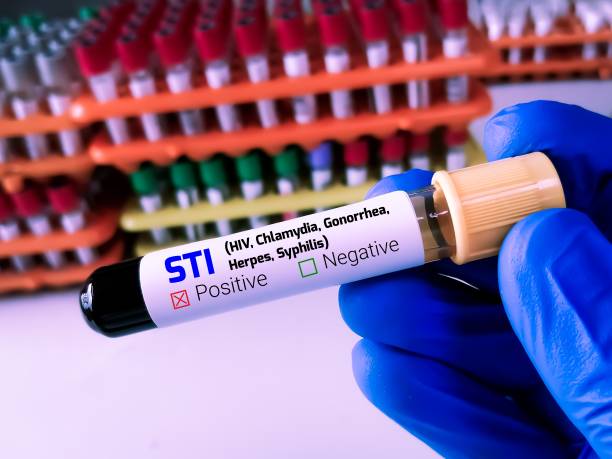Quick Answer: An STD diagnosis isn’t the end of your sex life, it can be the beginning of something better. For many, including myself, it became a wake-up call that led to honesty, safer sex, more meaningful relationships, and even better pleasure. Diagnosis doesn’t destroy intimacy; it can rebuild it stronger than before.
The Diagnosis That Shook Me Awake
It started with a weird, crampy feeling, not painful, just...off. I ignored it for weeks, blaming stress, travel, maybe a UTI. But when I finally tested, the result came back fast and blunt: Chlamydia positive.
I had never felt so exposed. I wasn’t “reckless,” I told myself. I wasn’t “the kind of person” who gets STDs. And yet, there I was, Googling symptoms, treatments, and whether I should text the guy who ghosted me two weeks prior.
What no one tells you? That first diagnosis strips you raw, but it also gives you a chance to start over. And I did.
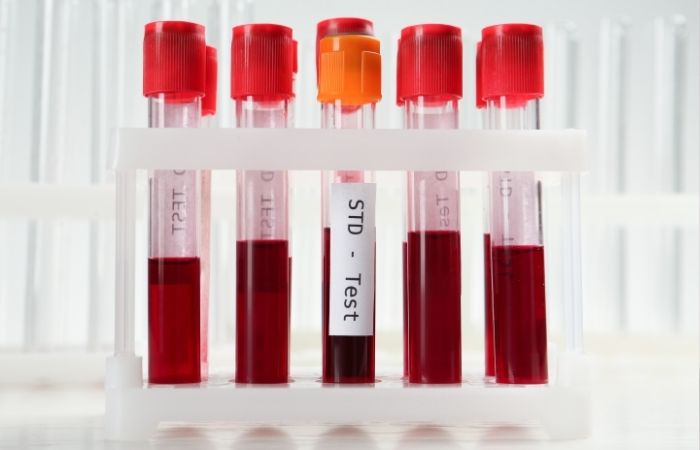
People are also reading: What Does Syphilis Look Like?
Reclaiming My Body After Diagnosis
At first, I felt like my body had betrayed me. Sex became mechanical. I tensed up during intimacy, afraid I might pass something else on, even though I was already treated and cleared.
But slowly, something shifted. I started asking questions I never had before:
- Do I feel safe with this person?
- What does my body actually want right now?
- How can I protect both of us and still feel sexy?
Being forced to pause made me intentional. I started carrying condoms, not just for safety, but as a statement: I care about myself. I deserve pleasure *and* protection.
Honesty Became My New Turn-On
Before the diagnosis, I avoided “the talk.” I assumed if someone looked clean, they were clean. I used the “vibe check” as STD screening. I thought asking about status would kill the mood.
But post-diagnosis, I realized: honesty is incredibly hot. I started saying things like:
- “When was your last test?”
- “I’ve had chlamydia before, just want to be upfront.”
- “I use condoms because it lets me relax and actually enjoy this.”
And here’s the surprise: most people respected it. Many opened up in return. Some even thanked me. “I wish more people talked like this,” one guy told me after a second date.
Pleasure Without Panic
For the first time in my adult life, I had sex without the post-hookup anxiety spiral. No Googling symptoms the next day. No wondering if that sore was new or just razor burn. No calculating the risk of a one-night stand.
Getting diagnosed forced me to build new rules. Rules that made me feel calm, grounded, and safe. And guess what? That safety made sex more enjoyable. My body could finally relax. My mind stopped catastrophizing. I started experimenting, not from fear, but from curiosity.
The Partners Who Stayed, and Why That Mattered
One of the biggest fears after an STD diagnosis is rejection. I was terrified that anyone I told would run the other way, call me gross, or worse, ghost me with judgment hanging in the silence.
But then something wild happened: the right people stayed.
They asked respectful questions. They thanked me for being real. One even told me he’d been too scared to test, and my honesty pushed him to go. We ended up dating for six months, and it was the healthiest sex I’d ever had.
That diagnosis filtered my dating life. The flakes disappeared fast. The emotionally available ones stuck around. It was painful, but clarifying.
Check Your STD Status in Minutes
Test at Home with RemediumChlamydia Test Kit
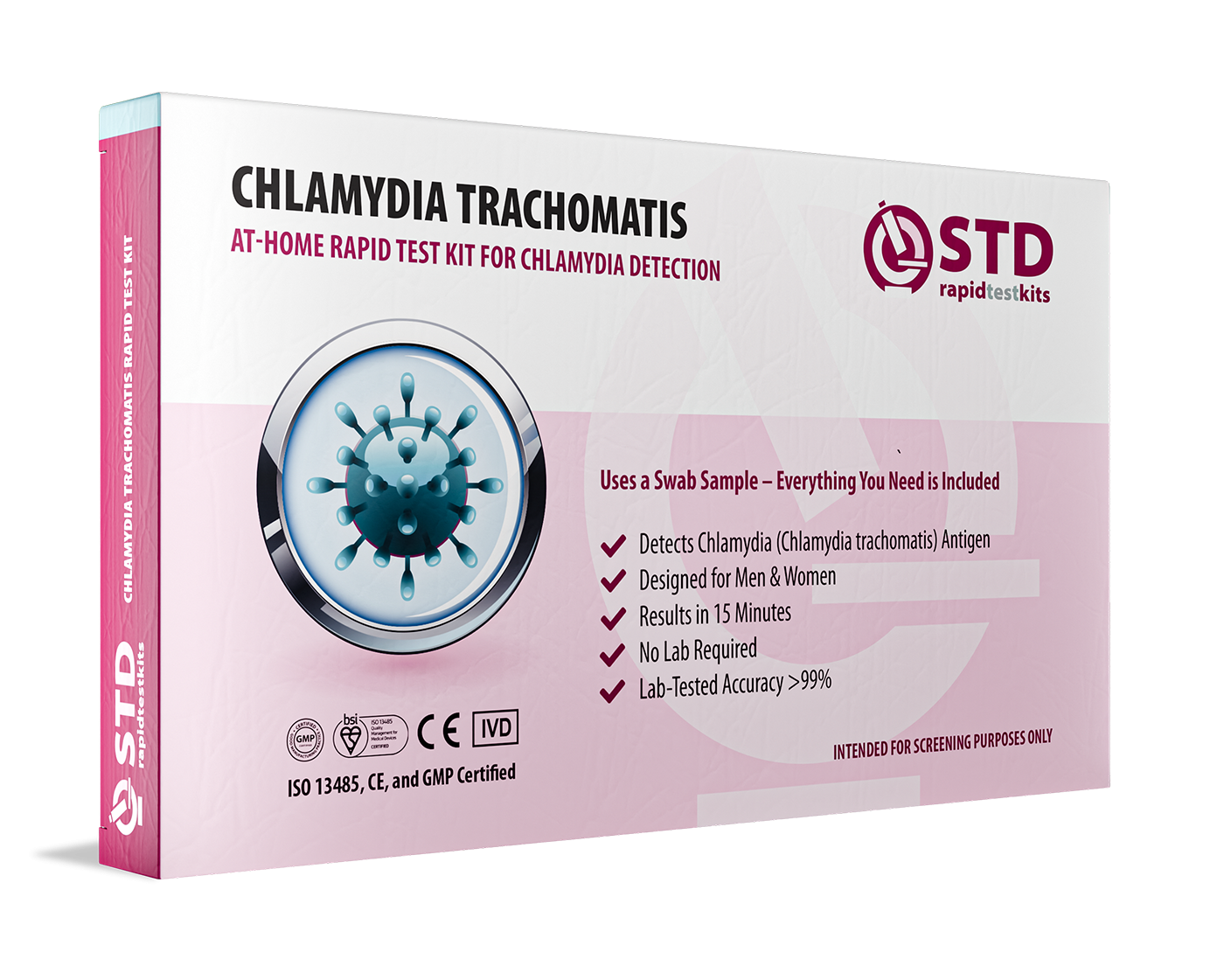
 For Men & Women
For Men & Women Results in Minutes
Results in Minutes No Lab Needed
No Lab Needed Private & Discreet
Private & DiscreetOrder Now $33.99 $49.00
Testing Became Routine, Not Scary
I used to treat STD testing like a punishment, something you do only when you think you’ve messed up. But after my diagnosis, I started seeing it differently. It became part of how I took care of myself.
I got tested every 3–6 months. I encouraged my friends to go with me. I even started doing at-home kits to avoid awkward clinic visits during COVID.
STD Rapid Test Kits became part of my self-care routine, right next to pap smears and mental health days. No shame. No secrecy. Just normalcy.
What Healing Actually Looks Like
Healing isn’t just about taking antibiotics and moving on. It’s about unlearning the shame you didn’t even know was there.
I had to untangle years of toxic messaging about “clean” vs “dirty,” about who “gets” STDs, and why they’re treated like moral failures instead of medical facts. I had to learn that my worth wasn’t tied to test results, and that my sexuality didn’t shrink because of one mistake, it expanded.
That healing made me a better partner. A better communicator. And honestly, a better lover.
From Trauma to Empowerment
The trauma of hearing “you tested positive” never really goes away. But it doesn’t have to define you. In fact, for many of us, it becomes the moment we start truly living in our bodies again.
It’s the line between passive sex and powerful sex. Between confusion and clarity. Between fear and freedom.
When I tell people this story, they often say: “I thought STD stories were all horror stories.” But mine isn’t. Mine is a survival story. And a love story. And a story about learning to touch myself again without flinching.
Community Helped Me Heal Faster
There’s a special kind of loneliness that comes after an STD diagnosis. You don’t want to tell your friends, you feel dirty, and the silence makes everything heavier. But eventually, I started talking. First in Reddit threads, then in DMs, and eventually in real life.
And that’s when it hit me: I wasn’t alone.
Everyone knew someone. Everyone had a story. Most people just didn’t talk about it. But the more I opened up, the more other people did too. We laughed about condom fails, swapped clinic tips, and reminded each other that being human is messy. And sex is too.
STDs Don’t Define You, They Reveal You
Before my diagnosis, I lived in performance mode. I chased approval. I tried to be “cool” about sex, chill about red flags, and hot enough to overlook disrespect. I thought confidence came from how wanted I was.
Now I know better. Confidence is saying, “I deserve clarity.” Confidence is bringing your full history to the table without apology. It’s refusing to perform and insisting on connection instead.
This diagnosis didn’t reduce me. It revealed me. I found out what I was made of, and what I deserved.
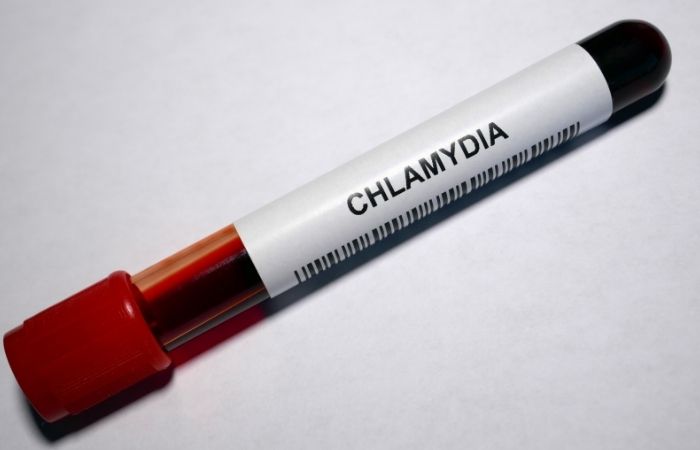
People are also reading: No Symptoms, No Problem? Not With Gonorrhea in 2025
Creating Safer Sex as a Norm, Not a Mood Killer
One of the best things that came out of my diagnosis? I started having intentional conversations before anything came off. Instead of killing the mood, it actually made me feel more in control.
Now I say things like:
- “Let’s use condoms, I get to enjoy this more when I’m not anxious.”
- “I test every few months, when’s the last time you did?”
- “I’ve had chlamydia before, so I’m a lot more careful now.”
Talking became part of the turn-on. Vulnerability became foreplay. And with the right people, it never scared them off, it drew them closer.
Getting Diagnosed Doesn't Mean the Fun Is Over
So many people think an STD diagnosis ends your sex life. What it really ends is the illusion that you’re invincible. It invites you to show up with your eyes open, and that’s when the real pleasure begins.
Since my diagnosis, I’ve had more connected sex, more satisfying relationships, and fewer panic-fueled Google searches. I know how to ask for what I want. I know how to protect what I have. And I know that bodies aren’t fragile, they’re resilient.
Getting tested didn’t destroy me. It made me braver.
What If I Hadn’t Gotten Tested?
Sometimes I think about the alternate version of my life, the one where I didn’t get tested. Where I kept ignoring that cramp, kept ghosting my gut instincts, kept pretending invincibility was the same thing as safety.
In that version, I probably would’ve infected someone else. I might’ve ended up with long-term complications. I definitely would’ve stayed in cycles of sex that didn’t serve me. Testing didn’t just save my health, it saved my direction.
That’s why I tell people now: Testing isn’t just prevention. It’s self-respect. And self-respect is damn sexy.
How I Talk to Friends About Testing Now
I used to be scared to bring up testing with friends. It felt taboo, invasive, maybe even judgmental. But after my diagnosis, I realized no one’s talking about this because everyone’s afraid.
So I started small:
- “Hey, wanna get tested together next week?”
- “Did you know you can test at home and get results online?”
- “I found this place that doesn’t ask for insurance, want the link?”
It opened doors. Friends opened up. People thanked me for normalizing what should’ve been normal all along. Now testing isn’t scary. It’s social. It’s solidarity.
STD Diagnoses Aren’t One-Time Events, They’re Checkpoints
Even after treatment, I didn’t go back to “normal.” And honestly, I didn’t want to. Because “normal” meant avoidance, assumptions, and unspoken fears.
Instead, I made diagnosis a checkpoint, a moment to pause, reset, and evolve.
Every test since then, every partner conversation, every quiet moment where I choose honesty over shame, it’s all part of that growth. Sex doesn’t just survive an STD diagnosis. It matures.
You Deserve to Feel Powerful Again
If you’re reading this with a diagnosis fresh in your mind, or fear in your gut, here’s what I want you to know: You are not broken. You are becoming.
There is nothing unlovable about you. There is nothing shameful about seeking clarity. You don’t have to disappear into silence or wait for a partner who “understands.” Start with yourself. Understand yourself. Choose yourself.
You can have wild, connected, fearless sex again. Not despite your diagnosis, but because of how you move forward from it.
Check Your STD Status in Minutes
Test at Home with RemediumChlamydia & Gonorrhea Test
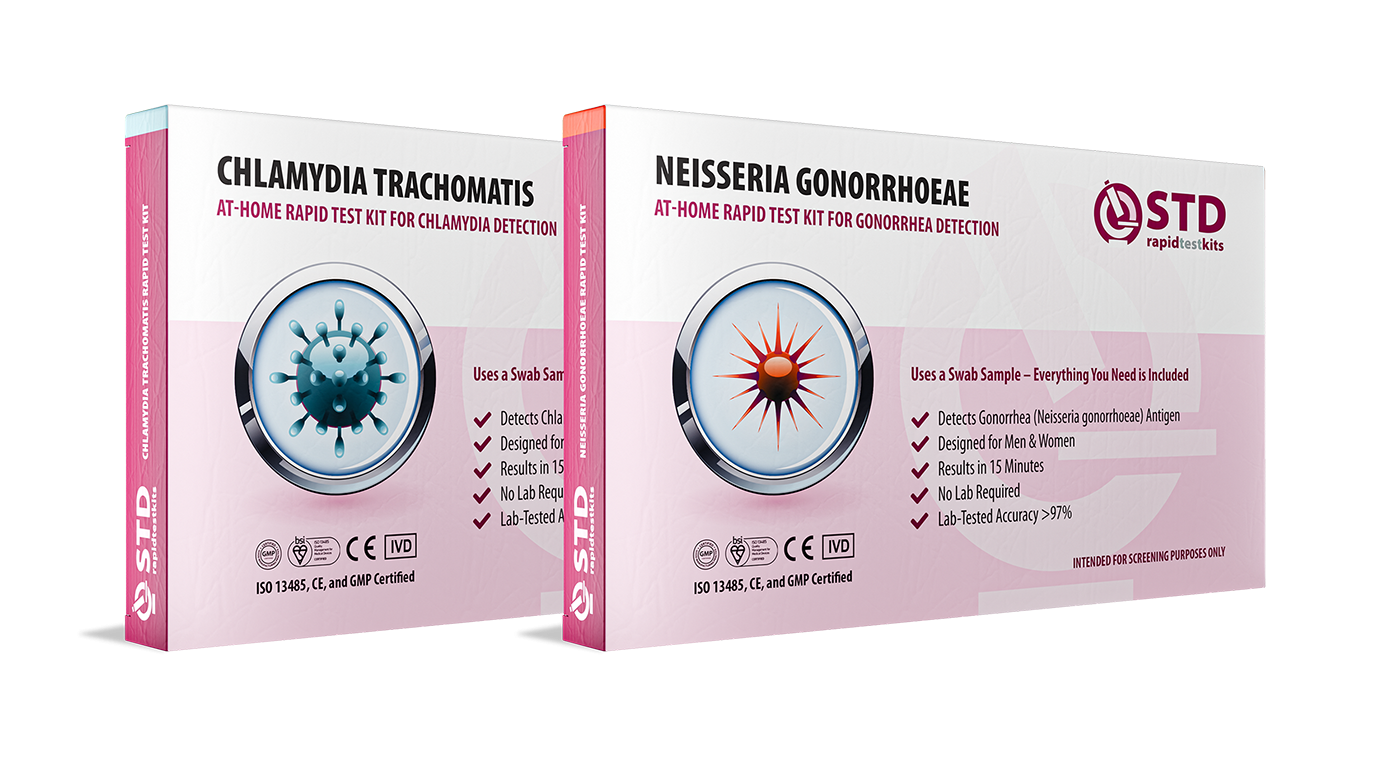
 For Men & Women
For Men & Women Results in Minutes
Results in Minutes No Lab Needed
No Lab Needed Private & Discreet
Private & DiscreetOrder Now $49.00 $98.00
For all 2 tests
FAQs
1. Can getting diagnosed with an STD actually improve your sex life?
Yes. It forces honest conversations, better boundaries, and often leads to more intentional, connected intimacy.
2. Is it normal to feel ashamed after an STD diagnosis?
Yes, but that shame is cultural, not factual. Many people carry STDs, and they say nothing about your value or cleanliness.
3. How do I tell a partner I’ve been diagnosed?
Be clear, direct, and compassionate. Most people appreciate the honesty and will respect your transparency.
4. Will anyone want to sleep with me after I disclose an STD?
Yes. The right partners absolutely will. Many may even open up in return about their own testing or experiences.
5. Should I stop having sex after an STD diagnosis?
Only temporarily during treatment or outbreaks. Once cleared or managed, sex can resume with precautions.
6. Can I have a fulfilling sex life with a chronic STD like herpes?
Absolutely. With management and communication, many people with herpes have active, joyful sex lives.
7. How do I stop feeling gross after a diagnosis?
Educate yourself, seek community, and talk about it. Shame fades in the light of honesty and support.
8. Can I get tested without insurance or ID?
Yes. Many clinics offer free or sliding-scale options. Or use at-home STD kits for full privacy.
9. How often should I get tested for STDs?
Every 3–6 months if sexually active with new/multiple partners. Even once a year is better than not at all.
10. What if I test positive again?
Then you treat it again. It’s not a failure, it’s being human. STDs are common, manageable, and treatable.
Diagnosis Isn’t Defeat, It’s a Doorway
I thought my sex life was over. Instead, it finally started making sense. That one test result shattered a false sense of safety, but in the pieces, I found something better: clarity, boundaries, connection, and real power.
If you're navigating a new STD diagnosis right now, take this in: you are still worthy of love, desire, pleasure, and choice. You are not your status. You are what you choose to do with it.
STD Rapid Test Kits helped me get answers. But it was the honesty that followed that truly saved my sex life.
Sources
1. CDC: STD Screening Recommendations
2. Planned Parenthood: Safer Sex & STDs






